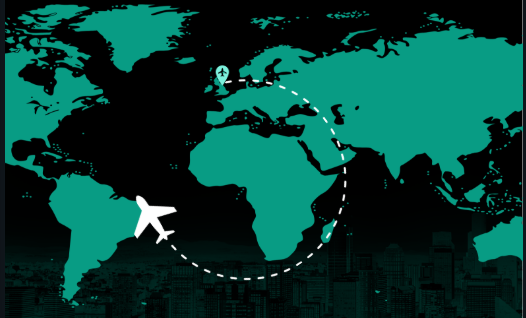Navigating Global Trade Shifts: Practical Guidance for North East SMEs
- Ash King
- Sep 22, 2025
- 3 min read

The North East and Tees Valley are home to some of the UK’s most ambitious and resilient businesses. From advanced manufacturing and food & drink to life sciences, digital, and clean energy, our SMEs are building on the region’s proud tradition of international trade.
But global conditions are shifting fast. Recent tariff changes in the US, supply chain disruptions, and new regulatory requirements have shown how quickly international markets can change. For many SMEs, these challenges feel daunting — yet they also present opportunities for those who act decisively.
This is where ISS Airview and ISS Freeports step in. Together, they provide a unique ecosystem of support designed to help SMEs de-risk international growth, cut costs, and scale confidently into new markets.
Five Practical Steps for SMEs to Stay Ahead
1. Assess Your Exposure
Global changes such as the new 10% baseline tariff on UK goods in the US market can have a direct or indirect impact on North East businesses.
ISS Airview’s advisory network offers tailored impact assessments, helping SMEs understand which products, markets, or supply chains are most vulnerable.
By mapping these risks early, firms can adapt strategies before margins are squeezed.
2. Rebuild Resilient Supply Chains
Rising costs across the supply chain are now the rule, not the exception.
ISS Freeports Teesside provides customs benefits including tariff deferral, duty suspension, and bonded warehousing — giving SMEs breathing space to reorganise routes and lower costs.
ISS also connects businesses to trusted global suppliers and logistics partners to strengthen resilience.
3. Review Contracts and Pricing Models
Many SME contracts were signed in more stable times. Without updates, businesses may absorb costs they shouldn’t.
ISS Airview’s professional services ecosystem — including lawyers, accountants, and trade specialists — helps SMEs review agreements, add shared-risk clauses, and adapt pricing to reflect new realities.
4. Use Mitigation Strategies
Even when tariffs can’t be avoided, smart strategies can reduce their impact.
ISS Freeports supports SMEs to access duty drawback schemes, explore First Sale for Export structures, and benefit from UK trade agreements.
Our global ISS hubs in Riyadh, Bangalore, and beyond also help firms diversify exports, reducing reliance on a single market.
5. Strengthen Customs & Compliance
Errors in customs classification or paperwork can be costly and cause delays.
ISS Freeports’ compliance support ensures SMEs stay on top of changing regulations.
ISS Airview’s in-country experts provide cultural and regulatory insight, smoothing entry into markets like the US, GCC, and India.
Why ISS?
Unlike traditional business support, ISS integrates People, Place, and Programmes:
People: A global network of investors, trade experts, and advisors with real-world market knowledge.
Place: State-of-the-art facilities at Newcastle International Airport (ISS Airview) and Teesside International Airport (ISS Freeports), designed as launchpads for international growth.
Programmes: Structured support, from Business Model Innovation and Investment Readiness to soft-landing services for inward investors.
By combining these, ISS gives SMEs not just advice, but the infrastructure and partnerships needed to turn ambition into global success.
The Bottom Line
Global markets will always shift — whether through tariffs, regulations, or supply chain disruption. But North East and Tees Valley SMEs have a unique advantage: ISS Airview and ISS Freeports on their doorstep.
By acting now — assessing risks, building resilient supply chains, adapting contracts, using tariff mitigation tools, and strengthening compliance — SMEs can not only weather global turbulence but thrive.
With ISS, the North East isn’t just part of the global economy — it’s leading the way.
Reach out now to our expert team to see how we can help you #GrowGlobal




Comments